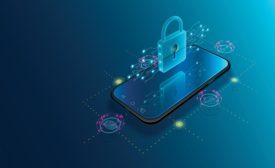Cybersecurity
Can the Tsunami of Phone-Based Social Engineering be Contained?
As soft target telephone scams become more sophisticated, people are turning to protocols like biometric verification for enhanced protection. But implementation is key.
March 17, 2020
Sign-up to receive top management & result-driven techniques in the industry.
Join over 20,000+ industry leaders who receive our premium content.
SIGN UP TODAY!Copyright ©2024. All Rights Reserved BNP Media.
Design, CMS, Hosting & Web Development :: ePublishing












